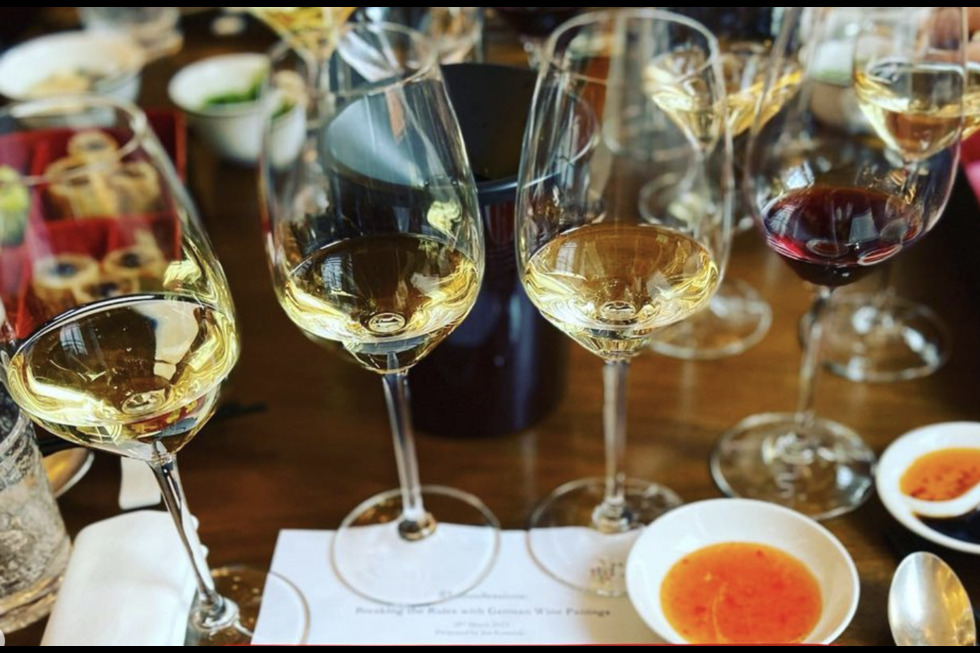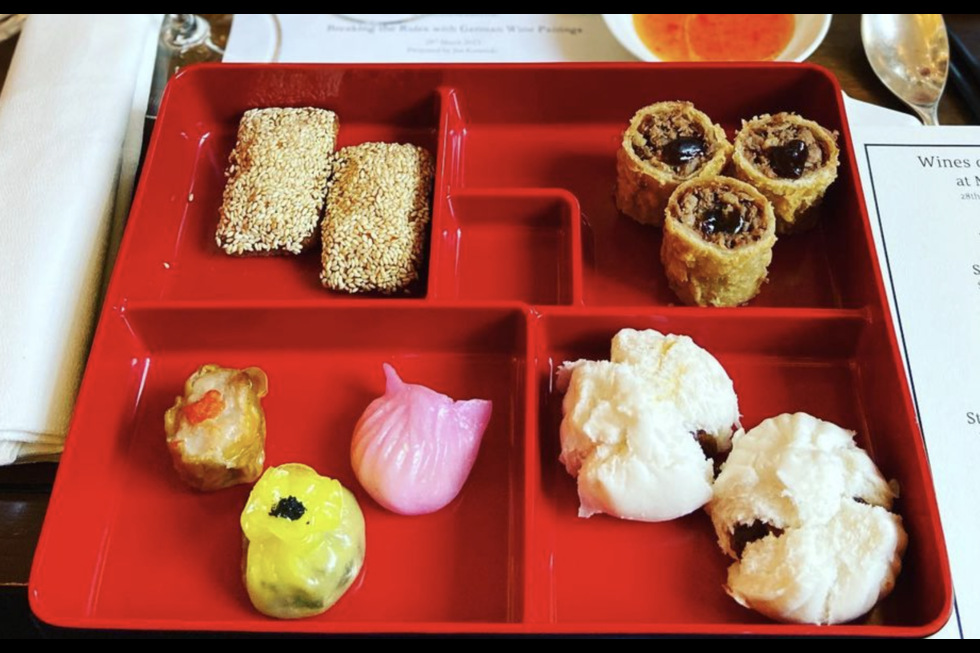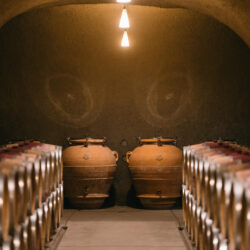Sommeliers are food and wine matching experts, Jan Konetzki pairs Mei Ume’s dim sum with German wines.
German wines are versatile, their taste profile match a wide range of food styles; aromatic, with lush fruitiness that stands up to spice and salt. Often they have the added bonus of being lower in alcohol.
Jan Konetzki, leading sommelier and wine expert, paired a selection of German wines at Chinese hot spot Mei Ume in London with the help of a group of London sommeliers.
From sparkling to sweet, Sauvignon to Pinot Noir they tested their palates and came up with some great matches.
Konetzki finds this kind of exercise “very useful. Bringing food and wine together in a workshop environment, to first taste the wines and then give sommeliers freedom to explore the wines and flavours in their own time, doesn’t happen often and it opens us up to discover, learn and share our impressions.”
The menu kicked off with Miso soup, followed Seaweed salad with a sesame vinaigrette and a char siu bun with char siu sauce filling.

The wines tasted were a German Sekt, the classic sparkling wine made from Reisling, a Sauvignon Blanc and Spätlese Riesling. Konetzki described the Sekt from Andreas Bender as a ‘great all-rounder’, and his team of sommelier tastersng found the sparkler stood up well to the umami-led miso soup.
A barrel-fermented Sauvignon Blanc from Oliver Zeter – fruity but delicately smoky – was also a versatile pairing option and a firm favourite with tasters: “this is definitely a wine that doesn’t ask if it can enter the club, it just walks in,” said Jan.
Matching with dim sum
Steamed dim sum is a favourite Asian choice for many, however the variety of flavours and textures can prove a challenge when it comes to matching with wine.
The selection from Mei Ume included har gau, char siu, mushrooms, black vinegar, chilli oil – no mean feat when it comes to the perfect flavour combination but however this team of top sommeliers felt that the Pinot Noir, known in German as Spätburgunder, from Ziereisen, was “more Burgundian in style than classic Baden,” according to Jan.
“Lithe, elegant and a great match for the dim sum selection with its varied flavour combinations. Generally, when you think German wine you think white but reds from the warmer regions are lush and light”, he added.

Wines tasted
- 2019 Riesling, Deutscher Sekt, Andreas Bender, Mosel
- 2020 Sauvignon Blanc, Fumé, Oliver Zeter, Pfalz
- 2018 Riesling, Reiler Mullay-Hofberg Schäf Spätlese, Thorsten Melsheimer, Mosel
- 2018 Pinot Noir, Schulen, Ziereisen, Baden
- 2019 Lemberger, Steinwiege, Schnaitmann, Württemberg
Next up on the menu, a Chinese classic, Sesame and prawn toast with sweet chilli sauce. The ripe, juicy fruit character of Thorsten Melsheimer’s Spätlese, with its notes of wild strawberry, peaches and lemon leaf, made it a great partner for the prawn toast, complementing the meat of the prawns and the sesame sweetness.
The final dish – delicious duck rolls with hoi sin sauce – was the went spectacularly with a native German varietal, Lemberger (also known as Blaufränkisch).
Jan highlighted the “plush plum notes, with an undercurrent of rooibos tea. Lemberger is often over-looked,” he commented, “but it is very food friendly. A particularly popular match for the duck rolls.”
Next time you fancy dim sum, follow the advice of the experts. Experiment with German wines to match– you won’t be disappointed.





